15 amazing Australian women you should know about
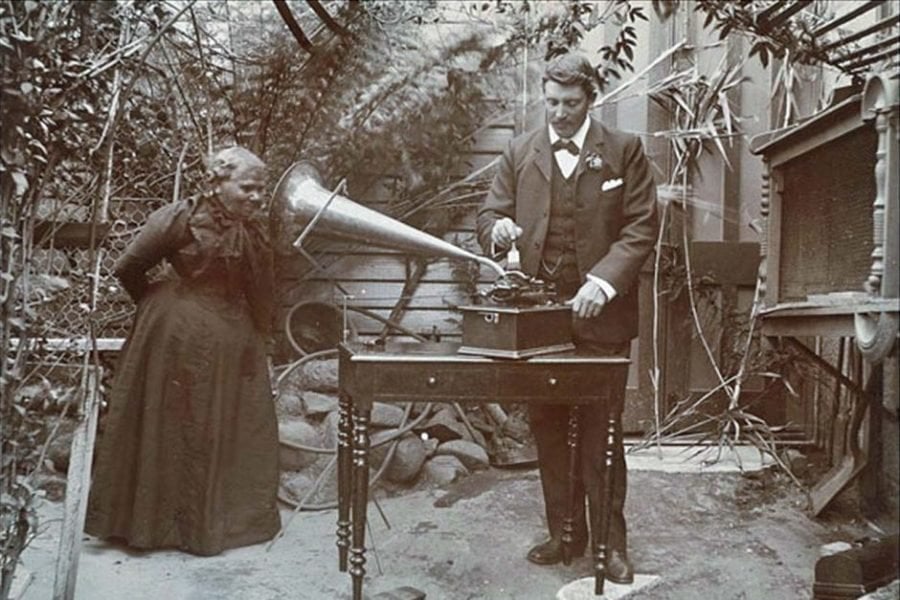
In 1876 it is thought that FANNY COCHRANE SMITH (1834–1905) may have become the last surviving full-blooded Tasmanian traditional owner. Despite being partly raised in orphanages and institutions, Fanny continued to return to her family and to hunt, gather bush foods and medicines, make baskets, dive for shellfish and carry out Aboriginal observances for the rest of her life. Proud and vocal about her heritage, in 1899 and 1903 she made the only recordings in existence of Tasmanian Aboriginal song on wax cylinders. These are held in the Tasmanian Museum and Art Gallery and can be heard here.
Photo Credit: Tasmanian Museum and Art Gallery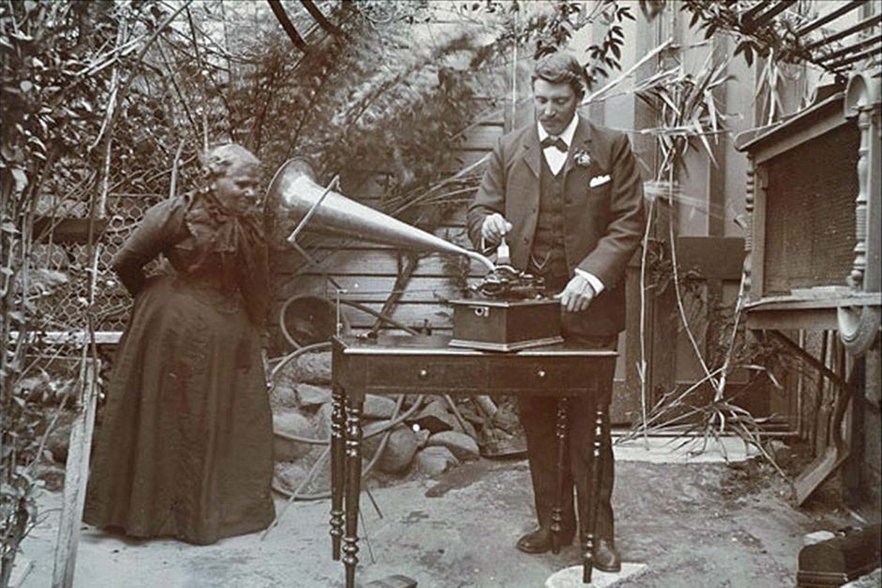
When young SARAH (FANNY) DURAK (1889-1956) and WILHELMINA (MINA) WYLIE (1891-1984) began swimming, women were forbidden by the New South Wales Ladies’ Amateur Swimming Association to appear in competitions when men were present. That meant that the Olympics were out for ladies in NSW. Nonetheless, Mina’s father built Wylie’s Baths in Coogee, Sydney, in 1907, where Fanny and Mina trained.
In 1908, Mina set a world record in the 100-yard freestyle event. Fanny and Mina’s performance in women-only competitions was so strong that there was a public push to send them to the 1912 Olympic Games in Stockholm (where there were only two women’s swimming events). As a result of public support, funds were raised and the rule about competing in front of men was reversed.
The girls would not disappoint. In Stockholm Fanny broke the world record for the 100m freestyle in a heat. She also won the gold medal for the 100m, the only individual event for women, beating Mina (who came second). Between 1912 and 1918 Fanny broke 12 world records. Between 1906 and 1934 Mina won 115 state and national titles and held world records in freestyle, breast-stroke and backstroke. Both women promoted women’s swimming for the rest of their lives.
Photo Credit: Mitchell Library, State Library of New South Wales
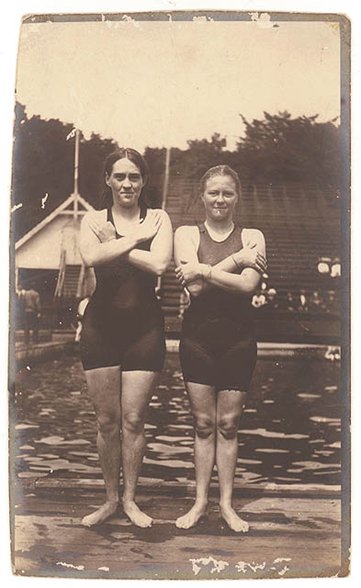
PROF ELIZABETH HELEN BLACKBURN AC (1948 – ) is one of only 48 women to have won a Nobel Prize. That’s out of the 900 Laureates who have received this distinction since 1901. Elizabeth was awarded a Nobel Prize for Physiology or Medicine in 2009, along with Americans Dr Jack W Szostak and Professor Carol W Greider, for figuring out how our DNA ages. In the 1970s Elizabeth and her colleagues made a discovery that explained how DNA eventually begins to deteriorate and how this, in turn, ages us. They found that young DNA is protected by little ‘caps’, called telomeres, at the end of our chromosomes. These caps, with the help of an enzyme called telomerase, stop our chromosomes from deteriorating. Every time a cell divides, the telomeres are worn down a little and it’s the enzyme’s job is to try to rebuild them. But eventually the telomeres are worn down, and once they are beyond repair, cell death is triggered. This eventual wear and tear on our chromosomes is one of the reasons our bodies age. If we can stop telomeres from deteriorating we may be able to slow the ageing process and extend life by an extra five to 30 years. Telomeres are also thought to play a key role in cancers, such as pancreatic, bone, prostate, bladder, lung, kidney, and head and neck cancer. In the future, if telomerase can be controlled, these cancers may be preventable.
Pictured (L – R) Gregory Boyle, Mrs Ed Roberts, Amy Tan, Jerry Brown, Ann Brown, Magic Johnson, Al Jardine, Buzz Aldrin, Elizabeth Blackburn, and Carlos Santana attend the 2011 California Hall of Fame Inductee Ceremony at the California Museum. Elizabeth currently lives in the USA.
Photo Credit: Tim Mosenfelder/Getty Images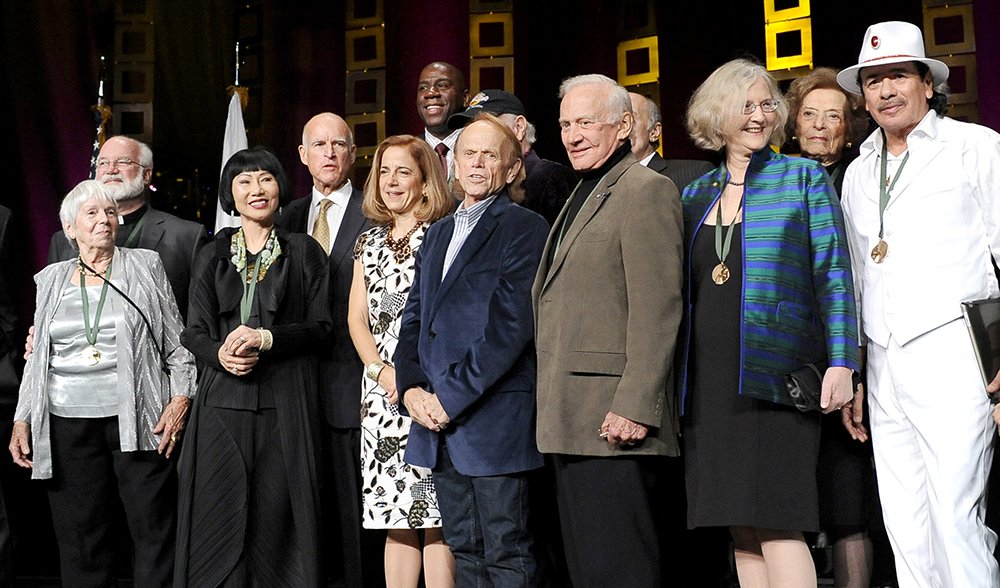
Spy NANCY WAKE GM AC (1912–2011) was the most decorated Australian servicewoman of WWII. She was also known as the ‘White Mouse’. Brought up in Sydney, she was trained as a spy by the British and quickly made top of the Gestapo’s most-wanted list for helping the French resistance. Nancy is thus also regarded as a heroine in France, which decorated her with its highest military honour, the Legion d’Honneur, as well as three Croix de Guerre and a French Resistance Medal. She was also awarded Britain’s George Medal, the US Medal of Freedom, and she was made a Companion of the Order of Australia in 2004.
In the 1930s Nancy was working in Vienna as a freelance journalist and was disgusted by the treatment meted out to Jews. When France was occupied by the Nazis in 1940 Nancy and husband Henri Fiocca became active in the resistance movement, saving thousands of Allied lives by setting up escape routes and sabotaging German installations. After her British training she parachuted into France carrying weapons for Resistance fighters hiding in the mountains and took control of some 7500 freedom fighters before the D-Day landings. On one occasion she cycled some 500km in 71 hours to obtain new radio codes, the originals having been destroyed in a German raid. “I got back and they said, `How are you?’ I cried. I couldn’t stand up, I couldn’t sit down. I couldn’t do anything. I just cried,” she said of the ordeal. When the Germans became “curious” about her, in WWII, she fled to England. While she was gone Henri was taken by the Gestapo and executed. “I remember going out the door saying (to Henri) I’d do some shopping, that I’d be back soon. And I left and never saw him again,” Nancy said.
Photo Credit: Australian War Memorial: P00885.001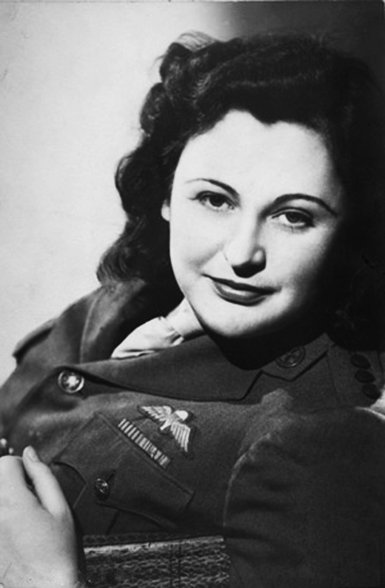
Born in Warialda, NSW, ELIZABETH KENNY (1880–1952) is one of the founders of the practice of physiotherapy. In fact, Elizabeth changed the treatment of polio despite huge resistance from the medical establishment. In 1932 Sister Kenny established a backyard clinic at Townsville to treat long-term poliomyelitis (polio) victims and cerebral palsy patients. She used hot baths, foments and passive movements, discarding traditional braces and calipers that were being used to bind polio patients, and instead encouraging of active movements.
She shocked English doctors with her recommendation to discard splinting used to prevent deformities and her general condemnation of the orthodox treatment of poliomyelitis cases. Returning to Australia, she was greeted with a royal commission in which leading Queensland doctors damned her methods. Nonetheless the effectiveness of her treatments couldn’t be denied and eventually, through the help of various supporters, they did become widely accepted. She went on to run courses for doctors and physiotherapists from many parts of the world. In 1946 she was eulogized in the film, Sister Kenny
Photo Credit: John Oxley Library, State Library of Queensland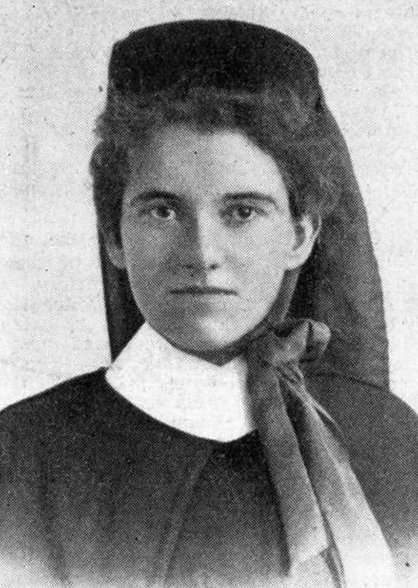
FIONA WOOD AM (1958 – ) pioneered ‘spray-on skin’, and after facing skepticism from the medical community, changed the care of major burn victims around the world. Born in England, Fiona studied medicine in London before moving to Australia with her husband, West Australian surgeon Tony Keirath, and their children. In Western Australia she became head of the Royal Perth Hospital Burns Unit (where she still works). There Fiona and her research partner Marie Stoner made huge progress in the area of tissue engineering. In her quest to achieve “scarless, woundless healing” Fiona has developed ‘spray-on skin’ which revolutionised the treatment of severe burns. Traditional skin grafting techniques for heavily burned victims typically takes at least 21 days, spray on skin takes required only five days to be cultured before tissue could be sprayed onto the wound. It’s become the standard treatment for severe burn victims around the world, including for US military personnel in the field. Fiona also became well-known throughout Australia during the aftermath of the Bali bombings on 12 October 2002, when numerous victims were flown to Royal Perth Hospital for life-saving procedures. Twenty-five of the 28 most heavily burned patients in her care survived. Fiona was Australian of the Year in 2005.
Pictured: Fiona Wood (centre) on an operating theatre at the burns unit of Royal Perth Hospital.
Photo Credit: Tony Ashby/Getty Images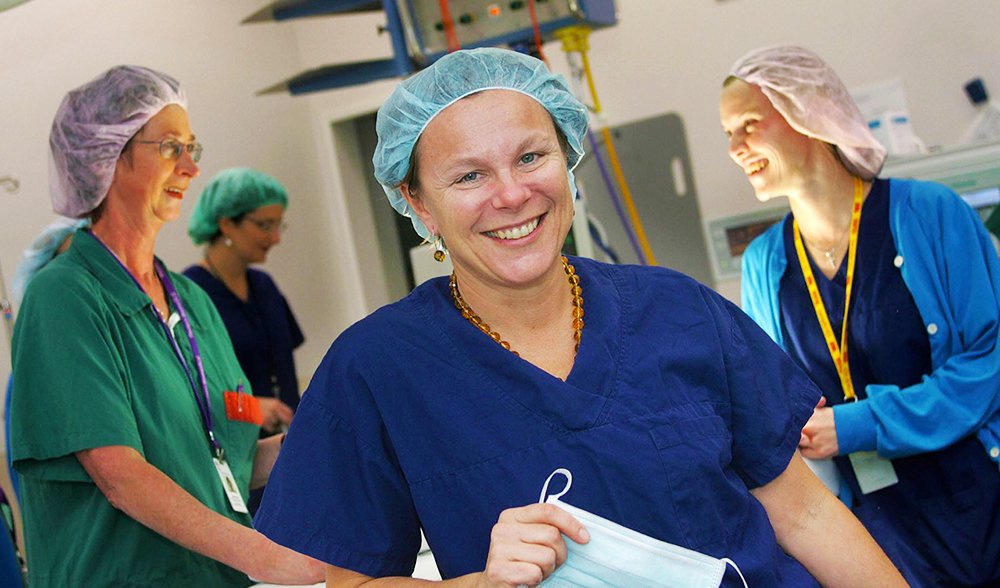
The tennis career of Australian MARGARET COURT AO MBE (1942– ) is undoubtedly one of the most spectacular ever seen.
The Albury-born tennis player won 62 Grand Slam events – a record for either a male or female player. Her 24 Grand Slam singles titles and 19 in mixed doubles titles are also records for both men and women. She is the only woman to have achieved the mixed doubles Grand Slam, which she did twice.
She has won 91.74 per cent of the singles matches she’s played on all surfaces and was the top ranked player in the world seven years in a row.
Photo Credit: WikiCommons/Nationaal Archief Fotocollectie Anefo
FLORENCE VIOLET MCKENZIE OBE (1890-1982), known in her later years as ‘Mrs Mac’ by her students, was Australia’s first qualified electrical engineer, certificated radio telegraphist, the first female member of the Wireless Institute of Australia, and the first woman in Australia to hold an amateur wireless licence. She also has trained thousands of men and women in emergency signalling both before and after WWII for free, often going unrecognised for her contribution.
In 1921 Wallace bought a radio sales and repair shop in Royal Arcade, Sydney, which she ran until she married. In 1934 she founded the Electrical Association for Women where women could learn to use an electric kitchen and modern appliances. A keen letter writer, McKenzie also corresponded with Albert Einstein.
In July 1938 McKenzie joined the Australian Women’s Flying Club; she was elected treasurer and became responsible for training women pilots in Morse code. She also formed the Women’s Emergency Signalling Corps, which ran free courses. When World War II began, McKenzie had already trained nearly 1000 women in signalling subjects; she went on to train some 2000 more, a third of whom joined the armed forces despite resistance to females joining. After the war McKenzie continued to teach and her free signalling courses trained 2450 civil airline crewmen and 1050 merchant navy seamen by 1952. Although she was a Department of Civil Aviation official examiner her school never received official status.
Photo Credit: WikiCommons/Ex-WRANs association of NSW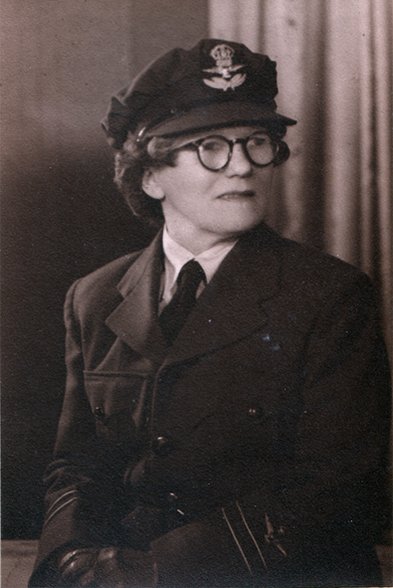
NANCY BIRD WALTON AO OBE (1915–2009) became Australia’s first paid commercial pilot in 1935. She’d had her first lessons from aviation legend Charles Kingsford Smith (after whom Sydney’s airport is named) at the age of 17 and bought her first plane a year later. She flew an aerial babies’ clinic for outback stations in western New South Wales and Queensland in her late teens, and in 1950 founded the Australian Women Pilots Association. For her energetic contributions to women and flying she became a Dame of the Knights of Malta in 1977 and in 1990 was awarded an Order of Australia by the Australian Government. In 1996, Nancy-Bird’s lifetime of dedication to aviation was acknowledged with an OBE and she was named a Living National Treasure by the National Trust of Australia in 1997.
Photo Credit: State Library of New South Wales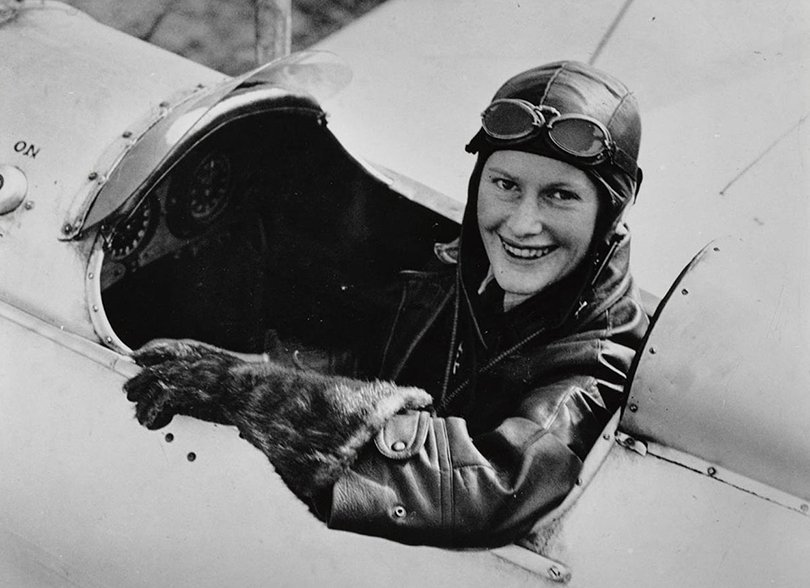
In the summer of 1914–15, when Hawaiian surfing legend Duke Kahanamoku called for someone to ride tandem with him, 15-year-old ISOBEL LETHAM (1899–1995) volunteered. From then on she became widely acknowledged as the first Australian to ‘board-surf’. Letham declined to acknowledge this claim to fame, preferring to consider herself the first Australian to ride local waves in the Hawaiian fashion.
Letham spent the rest of her life surfing, teaching swimming and trying to encourage women to swim. In 1980 she welcomed the admission, at last, of women as members of Surf Life Saving Australia, the same year that 15-year-old Sydneysider Pam Burridge won the inaugural Australian women’s surfing championship. Pam, who 10 years later became the first Australian-born women’s world surfing champion, had been inspired by Letham.
Photo Credit: WikiCommons

PAMELA LYNDON TRAVERS OBE (1899–1996), the famously prickly creator of children’s book character Mary Poppins, was born in Maryborough in Queensland before moving to Sydney.
Travers later moved to London to pursue an acting and singing career, whilst also trying her hand at writing. In 1934 Lyndon (she took on Pamela as a stage name) was recovering from an illness in the country. To pass the time she told two visiting children tales of a magical nanny. She put this storytelling to use when she created the Mary Poppins books, that same year, and it was an instant success. Five more books about the prim and proper nanny followed with the last published in 1988. In 1964 Disney made Mary Poppins an immensely popular children’s film based on Travers’ books, and made Travers incredibly wealthy in the process. Travers however did not give up the rights to her character easily and the story of Walt Disney’s wooing of her for the film rights to Mary (after promising his children he would make their favorite books into a movie) was made in to a Hollywood film in 2013, Saving Mr Banks.
Photo Credit: National Library of Australia/PX*D 334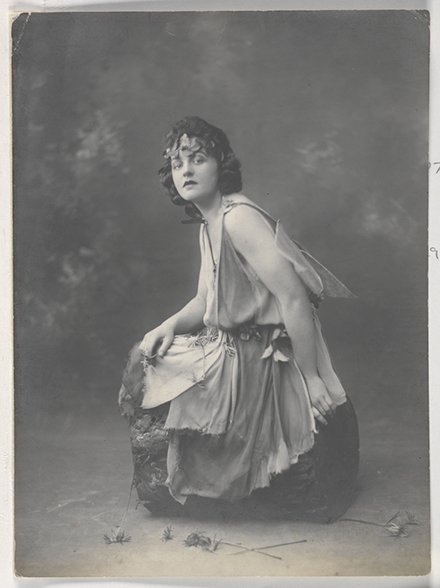
Aged just 19, rising tennis star EVONNE GOOLAGANG CAWLEY AO MBE (1951 –) defeated compatriot champion Margaret Court to win the 1971 Wimbledon title. Her graceful style, generosity and obvious love of the game made her extremely popular with Australians. She grew up in the small Riverina town of Barellan, one of the eight children of Kenny, a shearer, and Linda, of the Wiradjuri people. She was obsessed with tennis as a young child and set her sights on Wimbledon from the age of 10. Coach Vic Edwards soon invited her to move to Sydney where she became part of his family and quickly developed her game. She won seven Grand Slam singles titles, including the French Open in 1970 and four Australian Opens throughout the ’70s. Evonne’s second Wimbledon victory in 1980 affirmed her place as a much-loved national sporting hero; she was the first mother in seven decades to take the title and the first Aboriginal Australian to become prominent in international sport.
Photo Credit: AA:A6135, K27/1/72/17
Tiny 152cm Australian ballerina KATHLEEN GORHAM OBE (1928–1983) nonetheless became a giant of her craft. She started her career at 15 when she was picked up and signed by Australia’s Borovansky Ballet. Stints with Britain’s oldest dance company, Ballet Rambert, and leading roles in Paris followed, but Gorham kept returning to Australia and joined the new Australian Ballet in 1962 as its first prima ballerina. She later became co-director of the Kathleen Gorham-Rex Reid Ballet Academy and then of the National Theatre Ballet School in Melbourne. She died at only 55 of a heart attack.
Photo Credit: National Library of Australia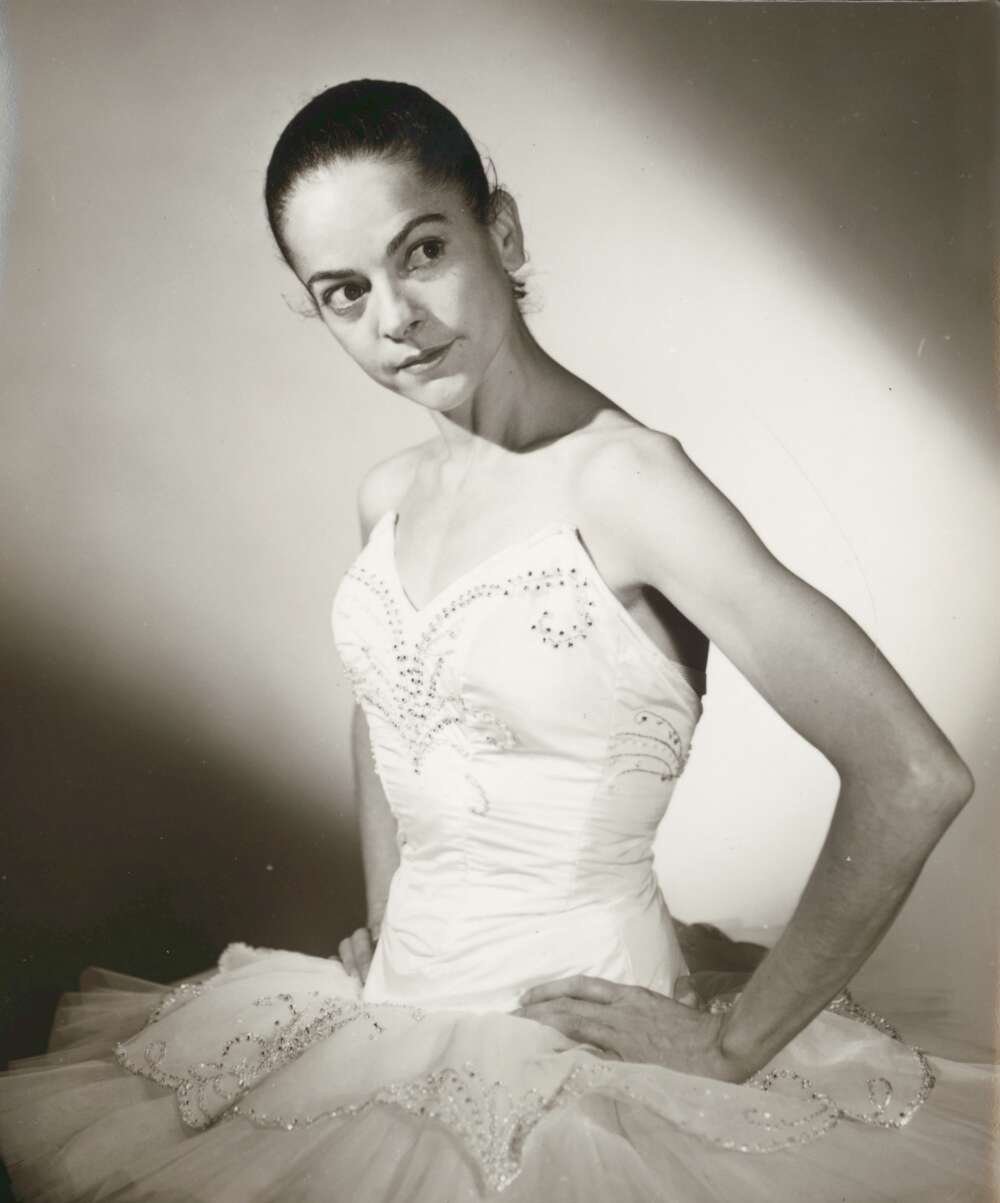
Born in Melbourne, IDA ALEXA ROSS WYLIE (1885–1959) was named for her her parents, Ida Ross and Alec Wylie. Her mother died when she was young and her father had some unusual relationships with women, including leaving his first wife after proposing to her sister (who refused). A prolific writer and storyteller, Ida eventually moved to Hollywood and between 1915 and 1953 more than 30 of Ida’s novels and stories were adapted into films. Ida never married, and moved in with two women in later life.
Photo Credit: WikiCommons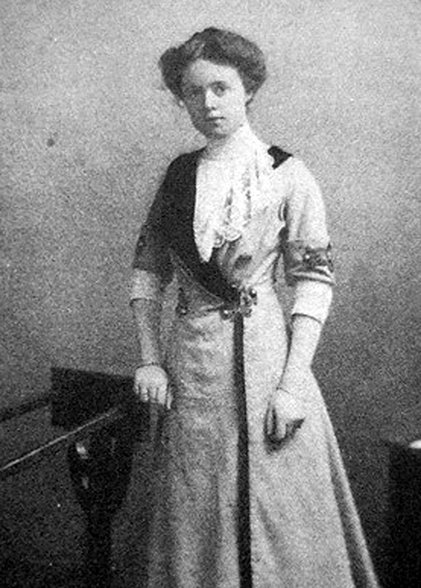
MARIE BYLES (1900–1979) was the first female solicitor in NSW and the first woman to set up a legal practice, as well as an avid feminist and bushwalker. With her bushwalking friends she had helped to secure the reservation in 1932 of 263ha of bushland as Bouddi Natural (National) Park. She had lectured for the League of Nations Union before World War II and during the war protested against the incitement of hatred of the Japanese. Byles also campaigned for women’s rights including equal guardianship, and for a married woman’s rights to retain her nationality and to have separate living arrangements.
Photo Credit: State Library of NSW/MLMSS 7071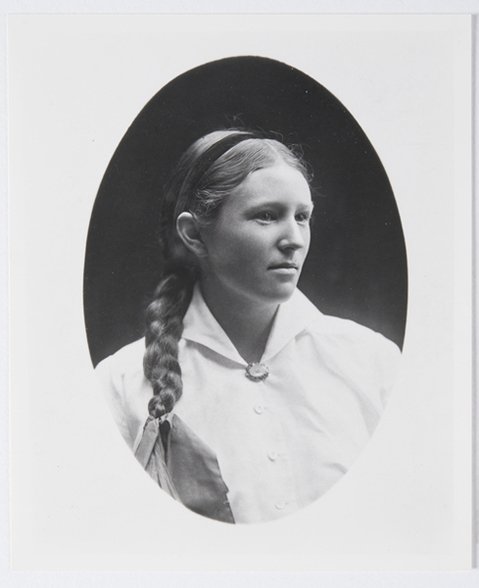
Home History & Culture 15 amazing Australian women you should know about


